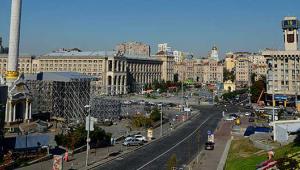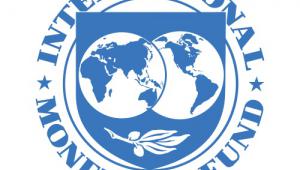The fund announced yesterday that its executive board had approved the disbursement, and granted waivers on performance targets Ukraine failed to meet. However, the payment is less than the expected $1.7bn as a result of stalled reforms.
Reuters reports that the country’s president Petro Poroshenko said the disbursement will help stabilise the currency and support Ukraine’s fragile economy, which is showing scant sign of recovery after it contracted by more than 16% in 2014-15.
The funding should clear the way for a $1bn loan guarantee from the US and another €600m ($675m) loan from the European Union, he added.
Poroshenko also lauded the fact that Russian attempts to block the release of the loan had failed.
The country’s finance minister had said earlier this week that it would vote against the payment going ahead because of a dispute over a $3bn eurobond that Ukraine had refused to repay.
However, because votes are conducted in secret by the IMF’s executive board, it is currently unclear whether Russia did indeed vote against the loan.
This latest payment had been delayed for around 13 months as a result of the slow pace of reform in the country as well as the long-running dispute with Russia.
Since the start of 2013, Ukraine’s progress has been dogged by repeated allegations of corruption and political infighting.
Commenting on the payment, IMF managing director Christine Lagarde said Ukraine was, despite the severity of the crisis, showing welcome signs of recovery, which she said “owes much” to the authorities’ implementation of reforms under the IMF programme.
However she warned that more progress was needed, especially in terms of fiscal reform.
“The authorities need to avoid tax policy changes that lead to higher deficits,” she said. “The focus should be on improving tax and customs administrations. Moreover, parametric pension reform is crucial to reduce the pension fund’s large structural deficit, help reduce fiscal deficits and public debt, and create room to bring pensions to sustainable levels over time.”
Public debt stood at around 94.4% of GDP last year, while its pensions deficit is projected to be 12% of GDP by 2025 and double to 30% by 2050.
Ukraine’s sustainable recovery will also depend on “completing the structural transformation of the economy”, continued Lagarde.
“Much more remains to be done, including combating corruption and improving governance. Creating a level playing field and ensuring equal application of the rule of law is essential to raise investment.
She highlighted the reform of the country’s ailing state-owned enterprises and prosecution in high level corruption cases as two areas where Ukraine needed to make a “decisive start”.
And, she said, it was important the resolution of remaining sovereign arrears – more explicitly, the Eurobond dispute with Russia – proceeds promptly.
Russia is pursuing a case against Ukraine in London’s High Court, with the first court date set for February. However, it has said it will consider an out-of-court settlement if Ukraine revises its restructuring plans.
Ukraine has argued it does not need to repay the Eurobond on the original terms as the bond was sold to Russia at a time when Ukraine was under immense political and economic pressure, as the economy began to tank amid civil unrest in the country in 2013-14.
The resultant political upheaval and ugly separation with Russia began as Ukraine pursued closer ties with Europe. This prompted Russia to annex Crimea, triggering a devastating conflict between government forces and pro-Russian separatists in eastern Ukraine, and saw the economy collapse completely.
This was the context in which the $17.5bn bailout deal with the IMF was sought, of which Ukraine has now received around $7.62bn, including the latest disbursement.












